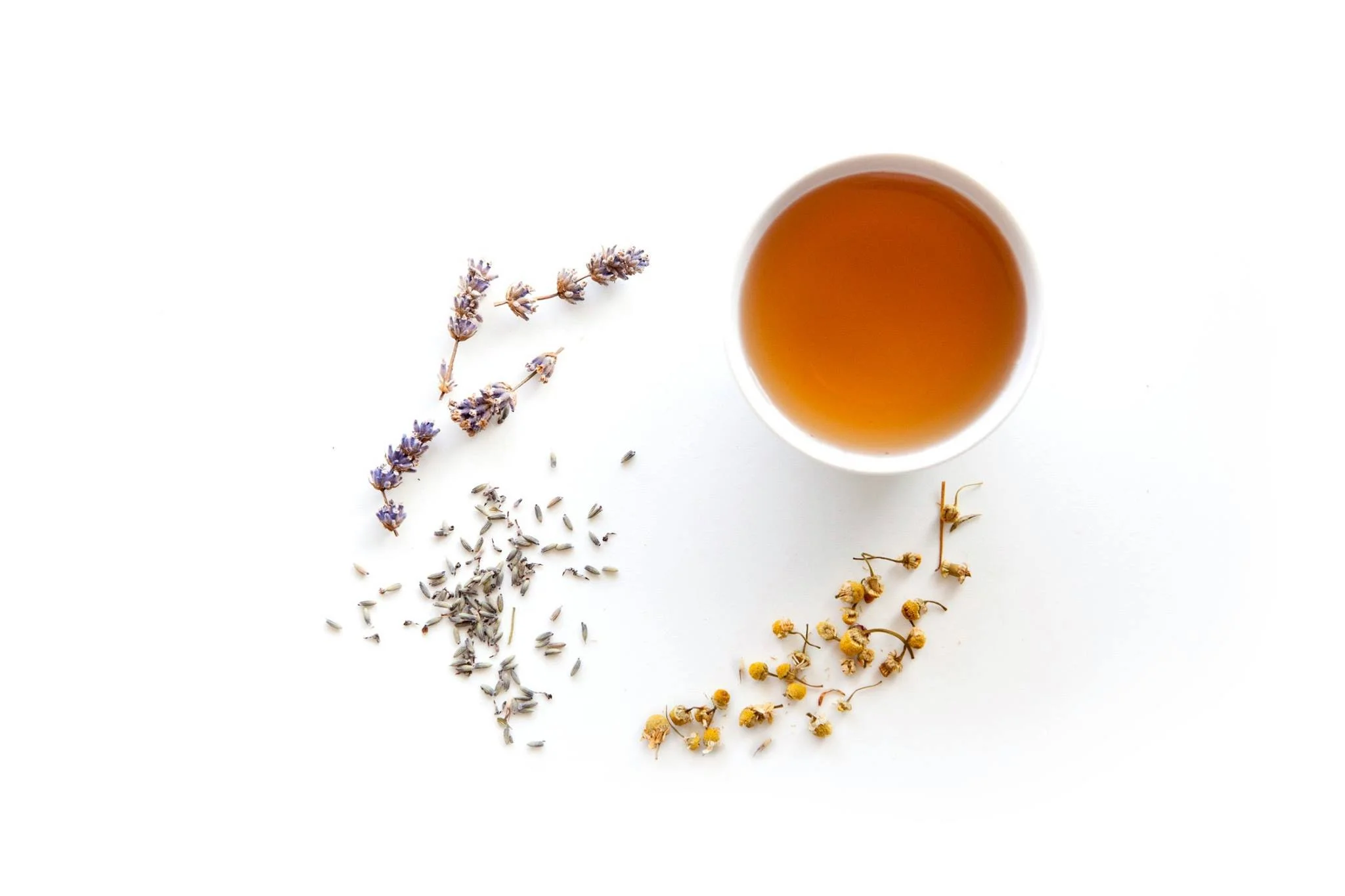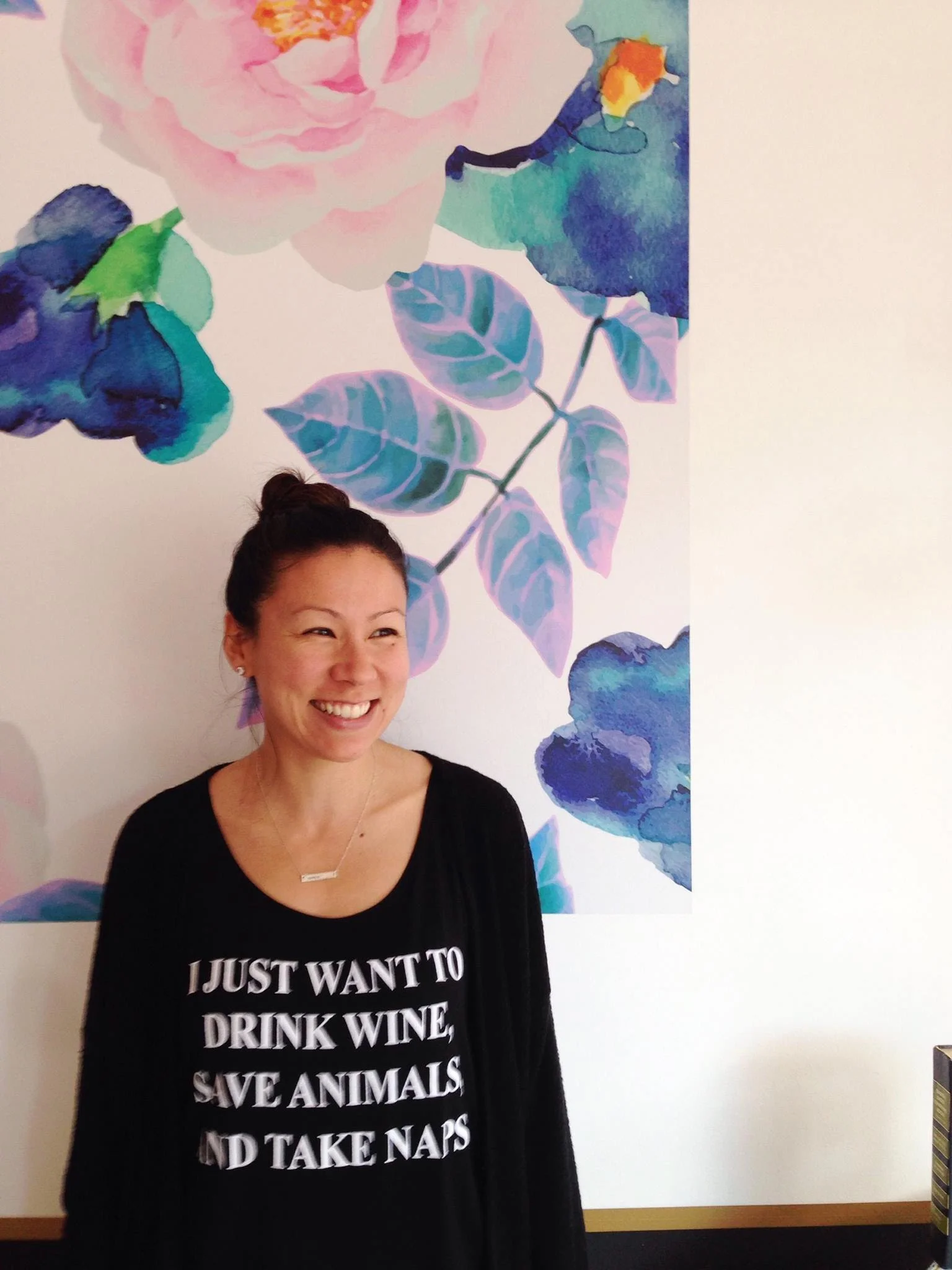The Ultimate Tea Guide For Morning And Evenings
Do you know what kind of tea you should be drinking in the morning, and in the evening?
Dip your infuser into the world of tea and you’ll notice right away: There’s a LOT of tea out there, and tea makers, from which to choose. The nuances of our favorite loose leaves cater to both body and soul and we believe it’s important to develop sacred morning and evening practices, so this naturally includes: tea rituals.
Amoda Tea, a brand true to its name (Joy, Peace, Serenity), is devoted to the creation and curation of teas rooted in health, well-being, and balance. Read on for ideas as we chat with Tegan Woo, Founder of Amoda Tea, on the best morning teas, the best evening teas, and how to incorporate them into your own daily wellness routines.
What teas do you recommend for the morning and why?
I drink matcha every single morning. I recommend matcha to anyone looking for a clean boost of energy, increased mental clarity, and focus. Lately, I’ve been looking for additional support of my adrenals and this includes cutting back on caffeine.
Matcha has much lower caffeine levels than coffee, and if you’re anything like me and trying to reduce your caffeine intake even more -- give this a try:
Blend ¼ tsp matcha with 1 tsp of maca, Siberian ginseng and/or cacao -- this provides a boost without as much caffeine. Just whip all that up into a nut milk latte!
A few other tea blends that I drink in the mornings:
- Sometimes, I just go for the pure matcha! This is especially on mornings where I don’t have much time to prep, so all I need to do is whisk the ceremonial matcha into hot water and I’m good to go!
- The other blend I can’t live without is Amoda’s new Matcha Bliss. If you’re kicking a coffee habit, our Activate Matcha is the one for you. Both of these blends are mixed with adaptogenic herbs to balance your body during stressful times. Try to drink these blends for a month straight -- taking just a day off each week! You’re more likely to feel the benefits of adaptogens over the long term.
What teas do you recommend for the evening and why?
In the evening, I like to drink herbal teas that are in line with one of my health goals right now -- getting better quality sleep (we actually have a specific type of sleeping tea for this!). Some herbal teas with turmeric can even reduce or prevent inflammation! In general, I recommend a non-caffeinated tea in the evening to relax and unwind.
Herbs I recommend for relaxation are lavender, chamomile, lemon balm, or skullcap. You can mix any of these herbs together into hot water to make a soothing infusion. Many natural health shops sell herbs in bulk, or you can order herbs online.
I love reishi mushroom so I also recommend giving this a try. Reishi mushroom calms your mind, nourishes your spirit, and helps you react better to emotional stress. Buy dried reishi in small pieces and just simmer it for a couple hours on the stove for a tea. It’s amazing.
Tea doesn’t always have to be about health though! Yes, tea is inherently healthy, but some nights I just want something delicious and decadent and so I reach for a chocolate mint rooibos steeped as a tea or mixed into a nutmilk latte.
Lots of people are addicted to coffee! What is the best tea to replace your morning coffee with?
We get this question a lot! From what I’ve seen, going cold-turkey is a major challenge! I’ve seen people get symptoms like headaches, irritability, and cravings. If you want to simply reduce or replace your coffee, just swap it out for a matcha. You’ll feel really good switching from coffee to matcha and you’ll even notice an immediate difference in the way you feel.
If you miss the richness, creaminess, and weight of coffee, try making matcha lattes. Matcha gives a slower release in the body, so you don’t feel it as quickly as coffee. But if you want a more intense kick right away, add in the adaptogenic herb, Siberian ginseng, this also supports stress.
If you’re trying to kick all caffeine for good, I’ve met many people who have had successful experiences by switching to turmeric lattes. If you don’t want to overdo it on the lattes, try roasted dandelion tea, it’s very rich and warming.
Help us break down all the different types of tea. What are the basic differences people should know about green, white, black, oolong, rooibos and matcha tea?
The two differentiating factors anyone should keep in mind about tea are: Taste and caffeine levels.
What is the caffeine content in tea?
Relative to coffee, all caffeine levels in tea are low. For reference, a standard cup of coffee has about 95mg of caffeine, or more.
On a scale from lowest caffeine levels to highest:
- Rooibos tea: 100% caffeine free
- Green tea: low caffeine levels (approximately 30mg of caffeine per cup)
- Oolong tea: low to medium caffeine levels
- Black tea: high caffeine levels (approximately 50 - 60mg of caffeine per cup)
How would you explain the taste of different teas?
There are exceptions, but generally:
- Green and white teas will taste much lighter in your mouth.
- Oolong tea is a spectrum between green and black tea
- Black tea tends to be more robust, stronger in flavor and weightier.
What are the basic things people need to brew the perfect cup of tea?
Just 3 things!
Your favorite mug.
A strainer basket that sits inside your mug.
Freshly boiled water. Make sure you boil this water starting from cold -- not the water that’s been sitting in your hot water tank!
One important thing to keep in mind is also steep time. If you want an easy place to start and remember steep times:
- 3 minutes for green and white teas
- 4 minutes for black teas
- 5 minutes for rooibos teas
What are the benefits of brewing tea vs using a bag?
It’s all about quality and taste. A tea bag is typically much smaller and sometimes the leaves are in broken pieces. This means that a lot of the essential oils have already been released and are gone before you even steep it, so you won’t reap the benefits of those oils, or the taste.
Bagged tea from grocery stores are typically lower quality -- but this is not always the case as I do see a few artisanal companies offering tea bags.
However, I always recommend steeping tea from the leaves. When you steep loose leaf tea in a large strainer, this allows the leaves to expand and create a more flavorful cup. Trust me: you won’t go back to teabags after trying properly steeped loose leaf tea!
How much is too much? How many cups of tea can someone safely drink per day?
This answer really depends on the person and their tolerance to caffeine. I always suggest
speaking with your doctor if you have any pre-existing conditions. I would refer to the caffeine levels I mentioned above to decide how many cups you can tolerate.
In my opinion, drink different types of teas throughout the day, you’ll generally be fine. I personally drink between one to two matchas each day, one black tea, and a few herbal and rooibos teas.
What is your current morning routine?
It has taken me a long time to cultivate healthy morning habits! I am not a natural morning person by a long shot! In the past, I used to snooze for an hour or more (sometimes without even realizing it) which caused me to wake up anxious and irritable. But I’ve finally found a morning rhythm!
I’m still working on waking up instantly, but I’m usually out of bed within 15 minutes of my alarm going off now. I started getting up 25 minutes earlier so I could have time for a short yoga sequence targeted for my lower back. I struggle to focus throughout the day because I have a lot of lower back pain and so starting my day with yoga has really helped me to be pain-free. I also love having a clear mind first thing in the morning and giving myself the extra time to intentionally decide what mood I want to start my day with.
After yoga, I’ll shower and get ready -- all the while thinking about my matcha elixir! I love the tea part of my morning. More often than not, I lean towards the Matcha Bliss blended with coconut butter and walnut milk. Just thinking about it right now makes me want one! I’m all about mood boosting in the morning and this blend really helps with that right now.
While I drink my matcha, I plan my day with a pen and paper, while trying not to open my laptop. After planning, I jump into the rest of my day.
What is your #1 tip to becoming a better morning person?
Stop hitting snooze! I know it’s easier said than done. But take it from a lifelong snoozer herself, my mornings and days are now 200% better, now that I no longer repeatedly snooze. I now only allow myself to hit snooze once on my alarm.
I also set a second alarm on my iPad, which I put out in the hallway. After fetching this second alarm in the hallway, I still have to tell myself, out loud, not to go back to bed. But it works!
Do you have any useful tools to recommend for the morning routine or evening routine?
Can you count my Vitamix? ;) I downloaded the Calm app recently, and I can’t wait to use this for guided meditation.
What’s next for you and Amoda Tea?
I’m really excited for 2018! I started this year with incredible energy in and around me so the creative juices are flowing. We’re also really into supermushrooms right now. We’ve had cordyceps, chaga and reishi in our matcha Mind & Body blends for awhile, but we’ve got some amazing new products coming out this year with supermushrooms in the spotlight. Expect to see more of me too because I’m pushing out of my comfort zone and making a lot more video content to help out all of the visual learners :)
Follow the adventures of Amoda Tea on Instagram, Facebook, and on their website.

